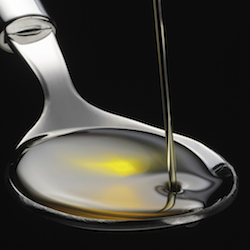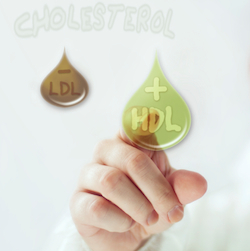Cardiovascular Health
Statement from CRN’s Duffy MacKay, N.D. in the Value of Omega-3 Fatty Acids and Heart Health
In Jan. 2018, the Journal of the American Medical Association published a study, “Associations of Omega-3 Fatty Acid Supplement Use With Cardiovascular Disease Risks.” The study received a number of negative media reports citing that Omega-3 fatty acids do little to reduce the risk of cardiovascular disease. In response toRead
Global PURE Study on High-Carb, Low-Fat Diets Points to Poor Outcomes
The long awaited PURE study is out and the results will put the supporters of diets low in all types of fats into a carbohydrate-fueled tailspin. According to the large cohort Prospective Urban Rural Epidemiology (PURE) study, higher fat diets that include both saturated and unsaturated fats are associated withRead
Extra-Virgin Olive Oil Polyphenols Improve HDL
Olive oil polyphenols are know for beneficial properties that reduce cardiovascular risk factors. Consumption is a cornerstone of the Mediterranean diet for its ability to produce health high-density lipoprotein profiles (HDL). However, data on polyphenol effects of HDL quality are scarce. This study assessed whether polyphenol-rich olive oil consumption could enhance the HDL main function, its cholesterol efflux capacity, and some of its quality-related properties, such HDL polyphenol content, size, and composition. The results once again show extra-virgin olive oil’s capacity for improved health. This article also give you some healthy advice from Today’s Practitioner editor as to how to tell your patients to buy good quality extra-virgin olive oil. By Alvaro Hernaez et al, published by the American Heart Association, Sept. 2014.
NEJM Editorial Advises Against Extended-Release Niacin
By now you’ve heard that niacin is no longer recommended for reducing heart attacks and strokes. After 50 years of being a mainstay cholesterol therapy, niacin should no longer be prescribed for most patients due to potential increased risk of death, dangerous side effects and no benefit in reducing heart attacks and strokes, writes Northwestern Medicine® preventive cardiologist Donald Lloyd-Jones, M.D., in a New England Journal of Medicine editorial published July 16. The study is no doubt controversial among physicians who rely on niacin for cardiovascular patients. Read the slideshow for a review of the study.
New Theory on Atherosclerosis: Massively Calcified Endosome Death
Molecular Secrets Discovered for Resveratrol’s Health Benefits
Resveratrol has been much in the news as the component of grapes and red wine associated with reducing “bad cholesterol,” heart disease and some types of cancer. Also found in blueberries, cranberries, mulberries, peanuts and pistachios, resveratrol is associated with beneficial health effects in aging, inflammation and metabolism. Scientists from the Florida campus of The Scripps Research Institute (TSRI) have now identified one of the molecular pathways that resveratrol uses to achieve its beneficial action.
Palmitoleic Acid Research Review
Within the world of essential fatty acids, a significant amount of interest is reserved for omega 3s and specifically for eicosapentaenoic acid (EPA) and docosahexaenoic acid (DHA). Another omega is gaining prominence called omega-7 (n-7), a palmitoleic acid also known for supporting cardiovascular health. When researchers look at the cardio-value of the Mediterranean diet, they see a complex interaction between multiple fatty acids, including omega-3s, omega-6s, omega-9s and omega-7s. The balance of these fats is crucial for overall wellness and longevity. The focus for this slideshow is palmitoleic, a lesser known but the fifth most commonly abundant fatty acid in the body. This is a review of the most recent research on Omega-7s.











